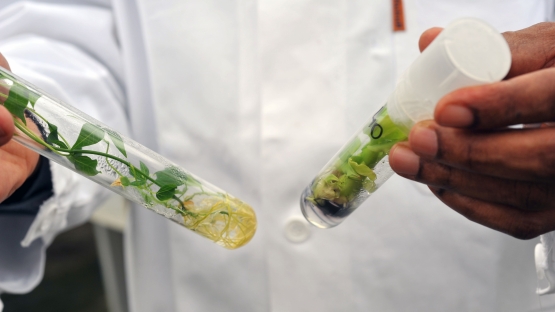Vegetatively propagated crops (VPCs) and horticultural tree crops (HTCs) play an important role in food security and income and represent significant agricultural opportunities in most countries of the globe. However, due to limited genetic diversity, their improvement has been very slow as they cannot be easily self or cross-pollinated to produced seed or expand variation.
Climate change further worsens this situation by causing serious production losses from factors such as intensifying and transboundary spread of pests and pathogens. To date, very few VPCs and HTCs have been improved or developed through induced genetic variation and released for cultivation compared to seed-propagated crops. To meet the rising demands for food and nutrition without adverse environmental footprints, it is imperative to develop efficient methodologies and protocols capable of overcoming these limitations associated with plant mutation breeding in VPCs and HTCs.
The IAEA, in cooperation with the Food and Agriculture Organization of the United Nations (FAO), is launching this new Coordinated Research Project (CRP) with a time frame of five years to develop novel genetic resources, methodologies and tools for accelerated breeding for productivity improvement in VPCs (root and tuber crops) and HTCs (olive) by using mutation induction and associated biotechnologies.


